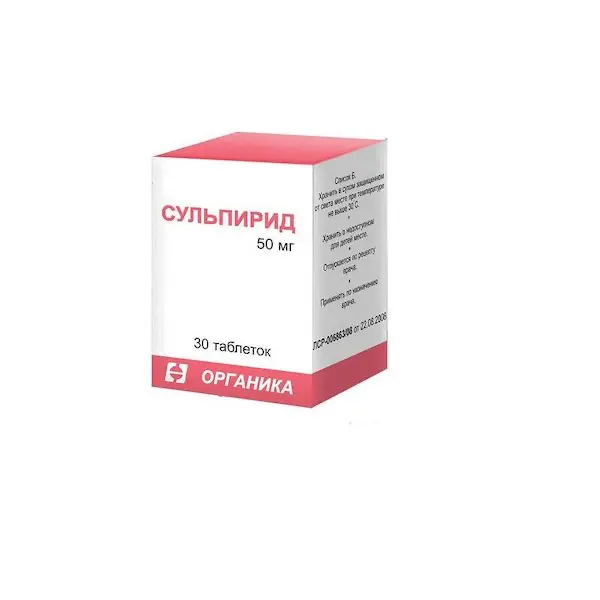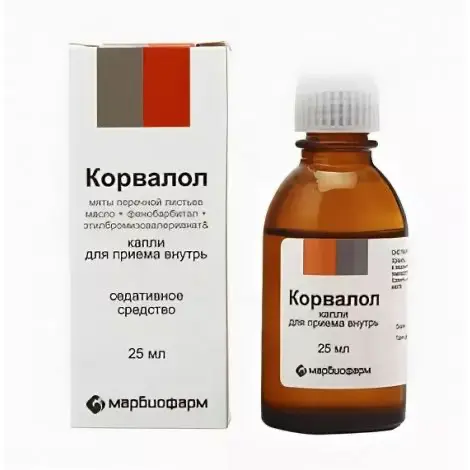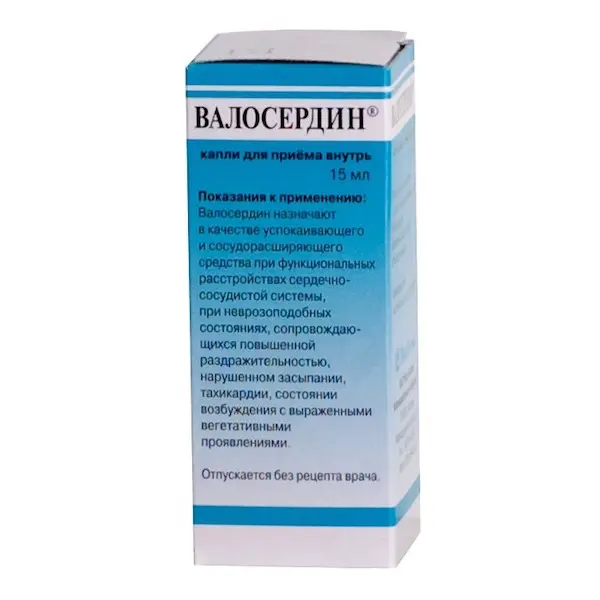Description
Sulpiride Pharmacodynamics
Atypical antipsychotic (neuroleptic), also has stimulant, antidepressant and antiemetic effect. The neuroleptic effect is associated with antidopaminergic action. In the central nervous system, sulpiride blocks mainly dopaminergic receptors of the limbic system, it has little effect on the neostriatal system, it has antipsychotic effect. Peripheral action of sulpiride is based on inhibition of presynaptic receptors. An increase in dopamine in central nervous system (hereinafter referred to as CNS) is associated with improvement of mood, a decrease – with the development of depression symptoms.
Antipsychotic effect of sulpiride is manifested in doses over 600 mg per day, in doses up to 600 mg per day, stimulant and antidepressant effects predominate. Sulpiride has no significant effect on adrenergic, cholinergic, serotonin, histamine and gamma-aminobutyric acid receptors.
Sulpiride stimulates prolactin secretion and has a central antiemetic effect (inhibition of the vomiting center) due to blockade of dopamine D2-receptors of the trigger zone of the vomiting center.
Indications
Anxiety disorders in adults (short-term symptomatic treatment if conventional therapy is ineffective).
Severe behavioral disorders (agitation, self-harm, stereotypy) in children over 6 years of age, especially with autism syndrome.
Contraindications
– Children under 18 years of age (for 200 mg tablets)
– Children under 6 years of age (50 mg tablets)
– Hypersensitivity to sulpiride and/or excipients of the drug
– Known or suspected pheochromocytoma
– Prolactin-dependent tumors (pituitary prolactinomas and breast cancer);
– hyperprolactinemia;
– acute porphyria
– acute intoxication with ethanol, hypnotics, narcotic analgesics
– concomitant use with levodopa (see section “Interaction with other medicinal products”)
– concomitant therapy with dopamine receptor agonists (rotigotine, cabergoline, ropinirole, quinagolide) (see section “Interaction with other medicinal products”)
– concomitant use with mechitazin, citalopram, escitalopram
– Breast-feeding period
– galactosemia, glucose/galactose malabsorption syndrome or lactase deficiency (due to the presence of lactose in the drug).
Dosage and administration
- Tablets are taken orally with plenty of fluids, independently of meals.
- Minimum effective doses of the drug should be used in all cases. If the clinical condition of the patient allows, treatment should start with a low dose. The minimum effective dose is selected by gradually increasing the dose until the desired effect is achieved.
- It is not recommended to take the drug in the afternoon (after 4 p.m.) due to the possible activating effect of the drug.
- Acute psychotic disorders in adults and chronic psychotic disorders in adults: The initial dose is 200 mg/day, if necessary, the dose may be increased, but not more than 1000 mg/day. The daily dose is divided into 2 to 3 equal doses.
- Doses in patients with impaired renal function: due to the fact that sulpiride is eliminated from the body mainly through the kidneys, it is recommended to reduce the dose and/or increase the interval between the individual doses of the drug depending on creatinine clearance values: In creatinine clearance of 30 – 60 ml/min the sulpiride dose should be decreased by 30%, and the interval between doses should be increased by 1.5 times; in creatinine clearance of 10 – 30 ml/min the sulpiride dose should be decreased by 2 times, and the interval between doses of the preparation – increased by 2 times; in creatinine clearance less than 10 ml/min the sulpiride dose should be decreased by 70%, and the interval between doses of the preparation – increased by 3 times.
- Short-term symptomatic treatment of anxiety states with ineffectiveness of usual methods of treatment: daily dose is 50-150 mg for not more than 4 weeks.
- Severe behavioral disorders (agitation, self-harm, stereotypy) in children over 6 years of age, especially with autism syndrome: the initial dose is 1 – 2 mg/kg/day, if necessary, the dose can be increased to 5 mg/kg/day. The daily dose of the drug is divided into 2 – 3 equal doses. The maximum daily dose for children and adolescents should not exceed 10 mg/kg/day.
- Doses for the elderly: The initial dose of sulpiride should be 1/4 to 1/2 of the adult dose.





